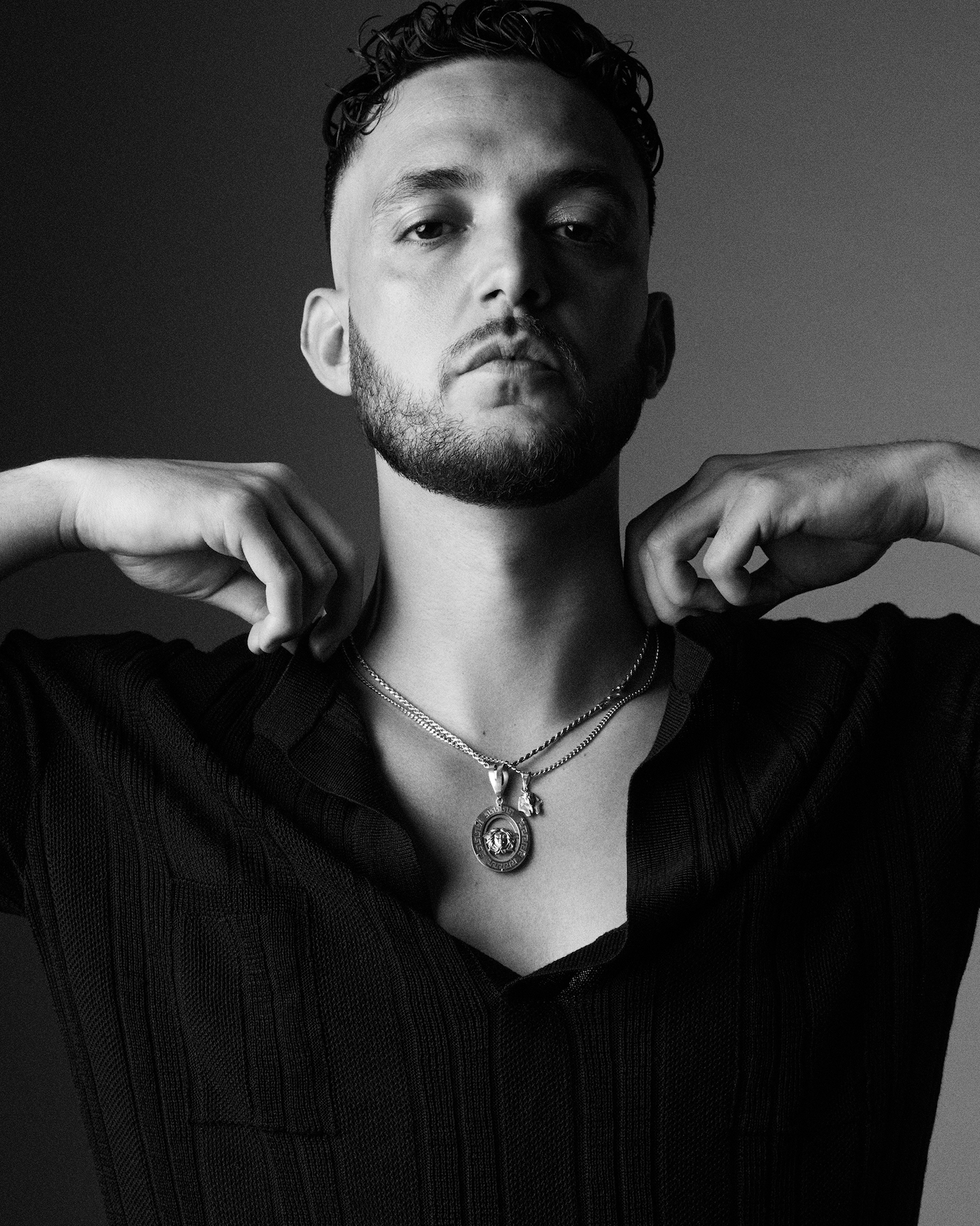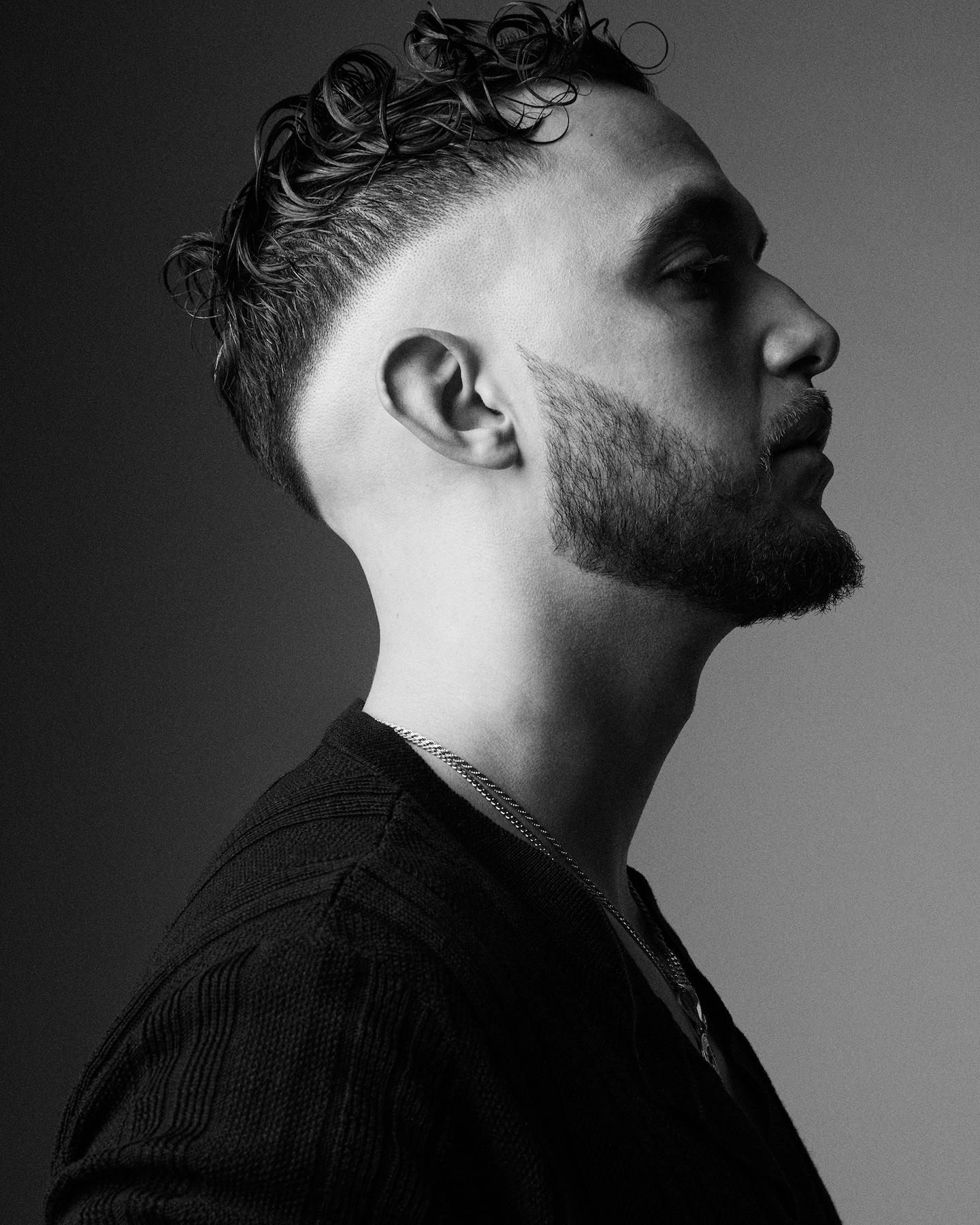LA NUEVA MOVIDA: C. TANGANA
La maestría musical de C. Tangana ha alcanzado sin lugar a dudas nuevas alturas con el debut de su muy esperado álbum El Madrileño.

C. Tangana’s musical mastery has undeniably reached new heights with the debut of his highly anticipated album El Madrileño, that has been two years in the making. Known for his flair for genre-bending, the Madrid-born rapper dials up the Latin heat as he merges traditional Spanish styles with new-age rock and hip-hop, solidifying the album as an instant classic. And while this album was one that the world very much needed, it almost didn’t come to fruition. After nearing the completion of another album, C. Tangana was forced to halt production on that project when the pandemic hit. Utilizing the time in lockdown as a period of introspection, the 30-year-old rapper was more in tune with his craft than ever, ultimately leading to 14 new songs and the conception of the album we now know as El Madrileño.
Spanish V: When did you realize you had a passion for creating music?
C. Tangana: From a very young age, I considered myself an artist. My father had a Spanish guitar at home and he taught me some chords, and as a teenager, I started writing my own material.
V: What attracted you to the hip-hop genre?
CT: Hip-hop is a good place for someone who does not have any techniques but who feels very creative, as was my case. Hip-hop requires nothing more from you than the intention to get things done and the ambition to be the best.
V: Who were some of the artists that influenced you and your sound?
CT: We are part of a new generation in Spain that claimed a sound typical of Madrid (Hermanos Herméticos, Chirie, Perros Callejeros). Rap in Spanish did not represent us much, so we had our eyes set on the ‘90s rap in the U.S.A.
V: You released your album El Madrileño a month ago. What was the songwriting and recording process like for you? What message did you want to communicate to the world with El Madrileño?
CT: It has been two crazy years in the studio—it is inexplicable how we have managed to put together that album and gather so much talent in less than 50 minutes. For me, the list of collaborators is a gift. El Madrileño is a new way of understanding Spanish songs and popular music made in Castilian. I intend to inspire new paths for the composers of the future.
V: How has COVID and the lockdowns shaped you personally and professionally? Did being in quarantine propel you forward and help your creativity flourish? Or was the lack of human interaction staggering for your work? If so, how did you overcome that?
CT: On the one hand, it blocked my activity but on the other hand, it sharpened my reflection. It was not a period of producing much, but it helped me to make the right decision and abandon a previous project (nearly finished) to finally face the launch of El Madrileño. I think it helped me to understand well what I wanted.
V: We’ve seen so much talent and creatives emerge from Spain over the last few years. What do you think has been the catalyst for this? Why do you think the world is paying more attention to Spain’s homegrown rising stars?
CT: There are several factors. On the one hand, we are the creatives who have survived the crisis, the rescue of Europe—we are a generation much more connected with the world, especially with Latin America. We are the most prepared generation of Spaniards and one of the most frustrated at a work level. I think that if you combine all this with the global boom in the language, the result is a breeding ground for new ideas.
V: What parts of Spanish culture influence you as an artist? What is something you’ve found that heavily influences you as an artist?
CT: I am a lover of pop culture. I think my strength is the connection points between mass culture and those specific works or artists that make a whole paradigm change—the type of artist that Lorca, Camarón, or Dalí represents.
V: As the world reopens, what is next for you? Are you planning to tour soon, especially now that your album is out? What are you most excited for?
CT: There should be a tour, it would be an unforgivable sin not to do a live show with this album—I hope we can solve that soon!
See the Spanish translation below
Vea la traducción al español a bajo
La maestría musical de C. Tangana ha alcanzado sin lugar a dudas nuevas alturas con el debut de su muy esperado álbum El Madrileño, que lleva dos años en producción. Conocido por su talento para la flexión de géneros, el rapero madrileño marca el calor latino mientras fusiona los estilos tradicionales españoles con el rock y el hip hop de la nueva era, solidificando el álbum como un clásico instantáneo. Y aunque este álbum era uno que el mundo necesitaba mucho, casi no llegó a buen término. Después de acercarse a la finalización de otro álbum, C . Tangana se vio obligada a detener la producción de ese proyecto cuando la pandemia golpeó. Utilizando el tiempo encerrado como un período de introspección, el rapero de 30 años estaba más en sintonía con su oficio lo que finalmente llevó a catorce canciones nuevas y a la concepción del álbum que ahora conocemos como El Madrileño.
Spanish V: ¿Cuándo te diste cuenta de que te apasionaba crear música? ¿Cuántos años tenías?
C. Tangana: Desde muy pequeño, me consideré artista. Mi padre tenía una guitarra española en casa y me enseñó algunos acordes, y de adolescente empecé a escribir mi propio material
V: ¿Qué te atrajo del género hip-hop?
CT: El hiphop es un buen lugar para alguien que no tiene ninguna técnica pero que se siente muy creativo como era mi caso. El hip-hop no te exige nada más que la intención de hacer las cosas y la ambición de ser el mejor.
V: ¿Quiénes fueron algunos de los artistas que influyeron en ti y en tu sonido?
CT: Formamos parte de una nueva generación en España que reivindicaba un sonido propio de Madrid (Hermanos Herméticos, Chirie, Perros Callejeros). El rap en español no nos representaba mucho, así que teníamos los ojos puestos en el rap de los 90 en Estados Unidos.
V: Acabas de sacar tu disco tu disco El Madrileño hace un mes. ¿Cómo fue el proceso de composición y grabación para ti? ¿Qué mensaje querías comunicar al mundo con El Madrileño?
CT: Han sido dos años de locura en el estudio es inexplicable como hemos conseguido armar ese álbum y reunir tanto talento en un menos de 50 minutos. Para mi la lista de colaboradores es un regalo. El Madrileño es una nueva forma de entender la canción española y la música popular hecha en Castellano. Mi intención es inspirar nuevos caminos para los songwriters del futuro.
V: ¿Cómo le ha formado COVID y los bloqueos personal y profesionalmente? ¿Estar en cuarentena te impulsó hacia adelante y ayudó a que tu creatividad floreciera? ¿O la falta de interacción humana fue asombrosa para tu trabajo? Si es así, ¿cómo lo superó?
CT: Por un lado me bloqueó la actividad pero por otro lado me agudizó la reflexión. No fue un periodo de producir mucho pero me sirvió para tomar la decisión correcta y abandonar un proyecto anterior (casi terminado) para encarar definitivamente el lanzamiento de El Madrileño. Creo que me sirvió para entender bien lo que quería.
V: Hemos visto surgir tantos talentos y creativos de España en los últimos años. ¿Cuál crees que ha sido el catalizador de esto? ¿Por qué cree que el mundo está prestando más atención a las estrellas emergentes de cosecha propia de España?
CT: Hay varios factores. Por un lado, somos los creativos que hemos sobrevivido a la crisis, el rescate de Europa— somos una generación mucho más conectada con el mundo, especialmente con América Latina. Somos la generación más preparada de Españoles y una de la más frustrada a nivel laboral. Creo que si juntas todo esto con el auge global del idioma, el resultado es un caldo de cultivo para las nuevas ideas.
V: ¿Qué partes de la cultura española te influyen como artista? ¿Qué es algo que ha encontrado que le influye mucho como artista?
CT: Soy un amante de la cultura popular. Creo que mi fuerte son los puntos de conexión entre la cultura de masas y esas obras o artistas concretos que hacen que todo un paradigma cambie por completo— el tipo de artista que representa Lorca, Camarón, o Dalí.
V: A medida que el mundo se reabre, ¿qué sigue para ti? ¿Planeas hacer una gira pronto, especialmente ahora que tu álbum está a la venta? ¿Qué es por lo que estás más emocionado?
CT: Debería existir una gira, sería un pecado imperdonable no hacer un show en directo con este álbum—espero que podamos resolver eso pronto!
Discover More

